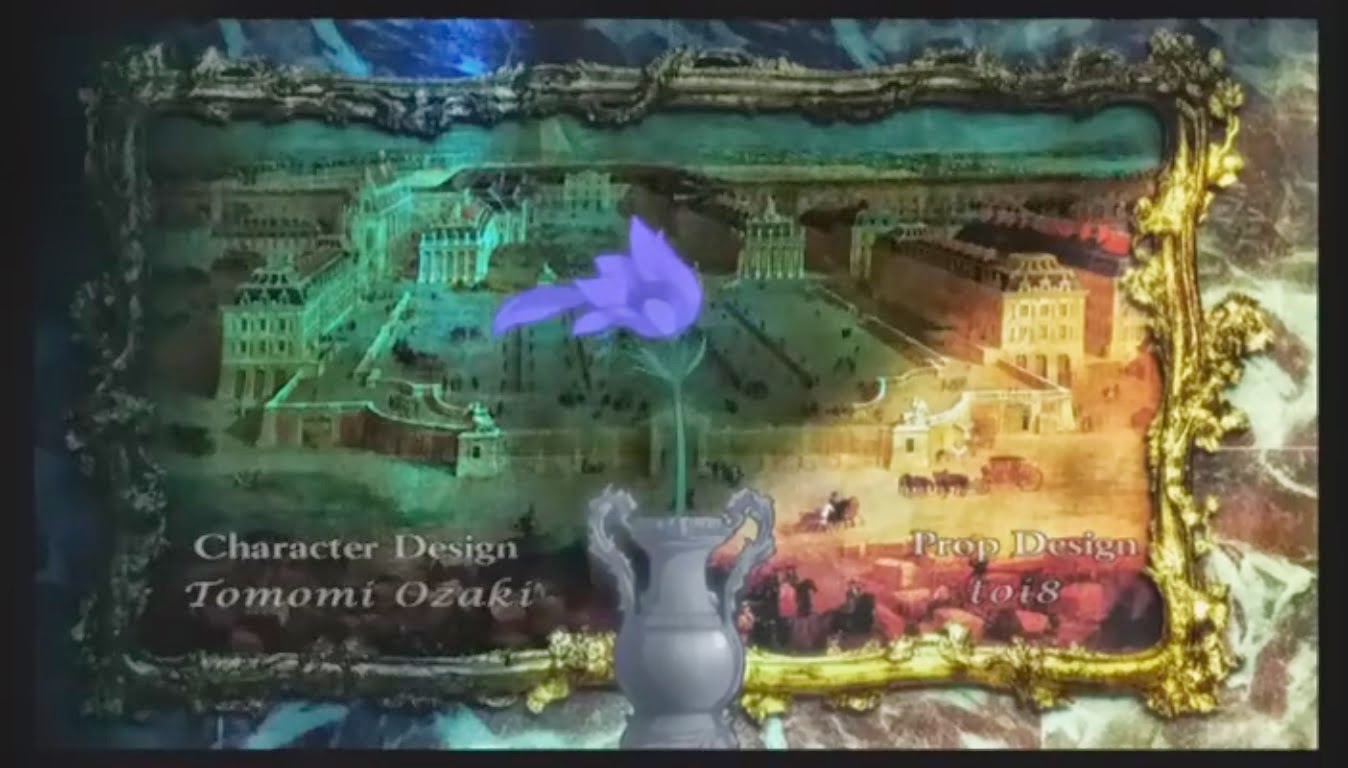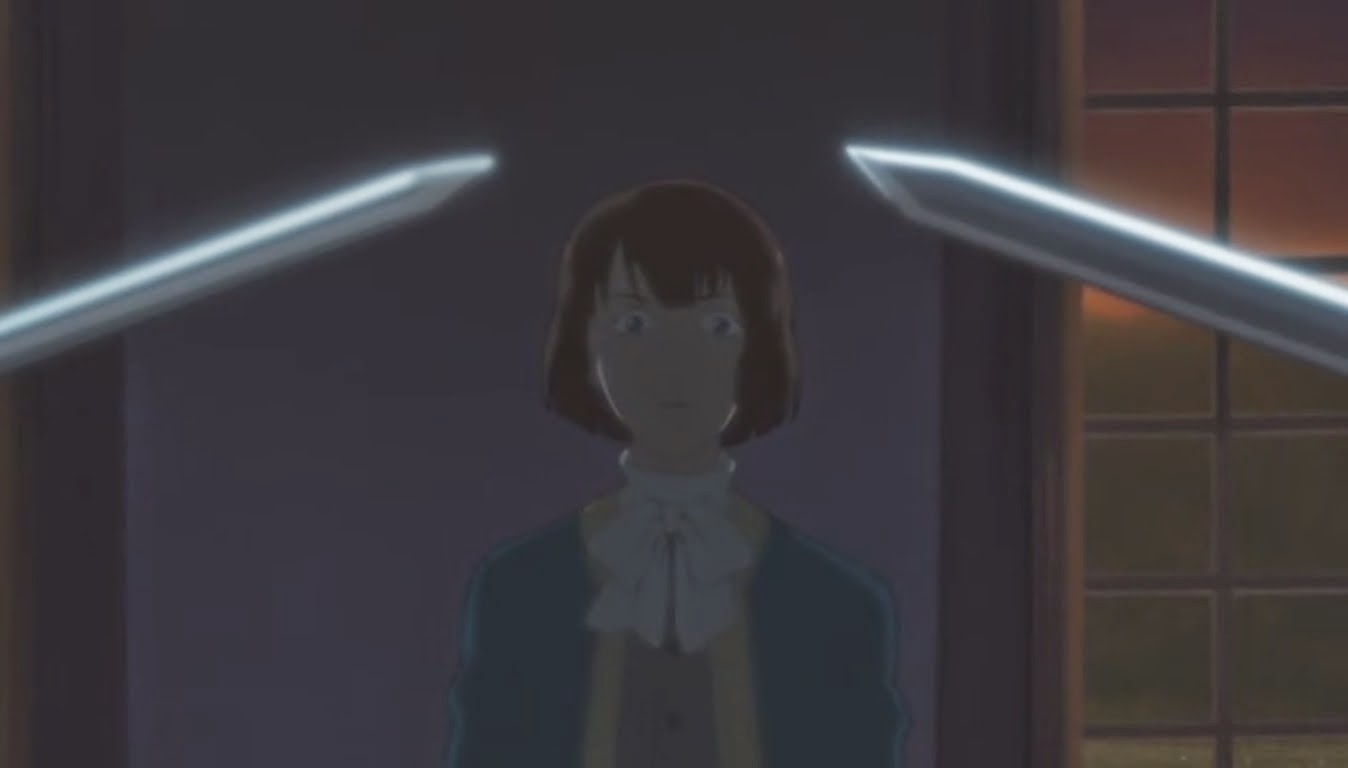Cross-dressing,
zombies and weird magic – can the French get any more Japanese than this?
If
I were to make a list of TV series I want to see in the foreseeable future
before the dolphins decide to take over, one of the things I’d put in the list
alongside ‘Requiems for Sean Bean’ would be a full-blown
production-values-high-as-hell adaptation of Le Chevalier D’eon. One with
luscious sets, monumental locations, great actors, great CG, multiple languages
and an ironed out plot.
If
I were to describe the series’ plot in a nutshell I’d sell it as fantastic and
innovative, but wrinkled to damn hell. The story is somewhat like this
incredible shirt that is sitting before you, it’s gorgeous and potentially
perfect. Why ‘potentially’? Because it’s wrinkled, so wrinkled that you want to
pick up an iron and iron the living fuck out of it so that it reaches its true
potential. But the problem is that this iron is a metaphysical entity andthe
shirt is a physical entity, thus the two are destined to never meet while you
sit, embittered and sipping on Old Monk while slowly turning into a French
existential philosopher.
 |
| There's plenty of political chess going on in the background. |
For
those not in the know, the series can be summed up as a fantastical take on the
events leading to the French Revolution and the world’s first transvestite. So
yes, it can be tagged as a ‘historical’ anime for all intents and purposes, but
that would be as accurate as tagging ‘300’ as a very accurate historical
depiction of whatever it tried to depict among a now overused line and
slow-motion shots. It isn’t really ‘history’ as it is ‘using history’, since it
freely shuffles events around, changes characters’ motivations and fates, and
does its fair tinkering about with history… which is fine, since it’s always
fun to see people play with history with the intent of telling their own story,
not his story (hehe). Some people stick their tongues out, wiggle their teeth
and say that ‘it’s changing history too much’ to which I respond with a
resplendent slap and ask them if it’s a movie adaptation of their favourite
novel.
It follows the knight D’eon as he partakes in a mission that takes him
across several countries as he tries to retrieve some stolen French documents
and tries to piece together the mystery behind his sister’s sudden death, all
of which are parts of the cogs leading to revolution, and the bloody Reign of
Terror.
 |
| 'Who should you bow before?' is one of the questions explored in the series. |
The
series is about a lot of things, to the point that it often starts to lose
itself in the maelstrom of things, and sometimes persistently hops between
things to varying effect. Political thriller, supernatural thriller, zombies,
philosophical thriller, what is a knight thriller, identity crisis thriller,
revolutionary thriller, it’s history so parts of it is a foregone conclusion
thriller and so on. Thriller is a word I just used a lot in the previous
sentence, and unfortunate it is not to foreshadow the presence of Michael
Jackson in the series, since that would be historically inaccurate, but a
comment on what the series seemed to try to be. And it does succeed… in part,
when the pacing is not off, since the pacing seems to shift gear like someone
who appears to have a gear fetish and thus seeks every opportunity to touch it.
The pacing is truly off, and the series can slow down immensely in spots and
then hit a breakneck speed before returning to morning-contemplations-and-tea
pace in the span of two episodes. However, the last quarter of the series is
just the entire series on red bull mixed with Russian vodka and espresso,
because golly does it reach some record speeds in the last quarter. A lot
happens in the last quarter, arguably as much as the rest of the series, which
can make it seem rushed. Though I personally loved the last quarter and it’s
arguably the main reason why this anime bears its lofty place in my mind now.
 |
| The power of words. |
 |
| The wishes of the dead. |
One
of the major sources of wrinkles are the characters. As concepts, as skeletons
and as representatives of varying viewpoints and standings, they are fantastic
and had the potential to speak for a lot without saying much. But characters do
not get the attention they deserve, and the side characters get the especially
short end of the deal, which is a shame. While the main characters get more
attention, they arguably do not get the adequate amount of attention they
deserved for certain developments or actions, which can make them seem jarring
and out-of-character initially. This is especially a shame since the characters
try to explore several conundrums in a country and world on the verge of a
great whimper. Voronstov, a knight torn between different loyalties and sources
of ‘honour’. Teillagory, a knight bitter at the lack of honour and skill in new
forms of combat. Robin, a youth just entering the world of loyalty and
knighthood just as it is changing.
‘Metamorphoses’ is one of the arc words of
the series, and is a fairly good one as the series is essentially about change,
for better and for worse, as everyone and everything undergoes dramatic changes
as the nation and world begin to change. And that’s what makes the series
compelling, the constant sense of change and shift in dynamics – it’s a shame
that the plot is held back in its entirety by the little holes and chinks –
numerous enough to form wrinkles in the shirt, to the extent of being an
example of something great being dragged down by the summation of its little
flaws.
 |
| With: Zombies, a very unique kind of zombies, but zombies nonetheless. |
While the plot progresses comfortably and
unrolls like a scroll written by Hitchcock at times, it is plague by a handful
of illogical moments which are bound to leave you scratching your head – as to
how they found their way into a more grounded, realistic (for what it’s worth)
and serious series, moments of egregious coincidence and hyper accurate
planning. Such as how character A perfectly planned some things so that
character B can go to a burning building and perfectly pull out book X before
it was completely engulfed in flames, with that book being one of great importance.
Thankfully these moments aren’t numerous, though this where a problem with the
magic in the series, Psalms and Poetry, rears its head.
The
concept behind the magic is, to be frank, brilliant. The usage of holy texts as
a source of malevolent powers and the usage of lines from holy Christian texts
as spells is a fascinating concept which doubles up as being incredibly
stylish. Unfortunately, as the series progresses the usage of magic increases
and so does the scale and intensity of it… but there is a lack of a solid,
logical explanation behind it. While we are given several fleeting glances into
how it works, enough to piece together a personal explanation, the lack of any
proper explanation lends to the series’ wrinkles as some plot events become questionable
and sometimes confusing as the magic seems to get ahead of itself and do great
things without fully fleshing things out.
The
way the magic is portrayed as swirls of words swirling around the world and
criss-crossing across surfaces is well done, as is most of the series. It is
quite the looker, and many of the backgrounds probably possess enough detail to
have driven the artists to insanity. Versailles, Paris, and all the other
palaces and cities are rendered beautifully with a great sense of aesthetic
detail and great CG direction, bringing these locales to life.
 |
| The series is rather pretty. |
The same can’t
be said for the characters who seem to a bit dry of life, with stiff facial
expressions which can sometimes detract from the seriousness in some emotional
scenes. There’s a distinct lack of expression in the characters, which is
partly due to the usage of a realistic art style closer to real life than any
other manga style, but even then the characters could have used more face care.
The series does have some the simplest and greatest fights I have ever seen,
bringing out the poetry of two people duelling with swift and smooth animation,
and a detailed focus on how swordfights work – showing us things like footwork
and the usage of non-sword tactics to win a fight.
 |
| What is honour? And where does one's loyalty truly lie? |
A
fine platter of food, with just enough to pique your curiosity and satiate your
palette just a bit, but it leaves you wanting more, but also with this haunting
feeling that everything on the platter seemed to lack that ‘one’ phantom
ingredient that would make it purely incredible. That’s what Le Chevalier D’eon
is in the long run of things. What is honour? What is loyalty? What does it
mean to be ‘a knight’? What is the cost of change? Is change a necessity? Does
virtue have a place in a changing world? What is fate? There’s a lot to taste
and enough to leave you somewhat satiated and grateful that you partook in this
meal, but there will be that stinging realisation that it could have soared a
much greater distance and become something phenomenal, flawless and utterly
engrossing.
It
falls flat of greatness, but it is still a worthy and powerful watch, one that
anyone interested in fantasy, alternate takes on history and mystery are bound
to find easy to enjoy. Also, ‘Over Night’ (the ending theme) is one of the best
songs ever, just had to put that out here.
C’est la vie.

















No comments:
Post a Comment